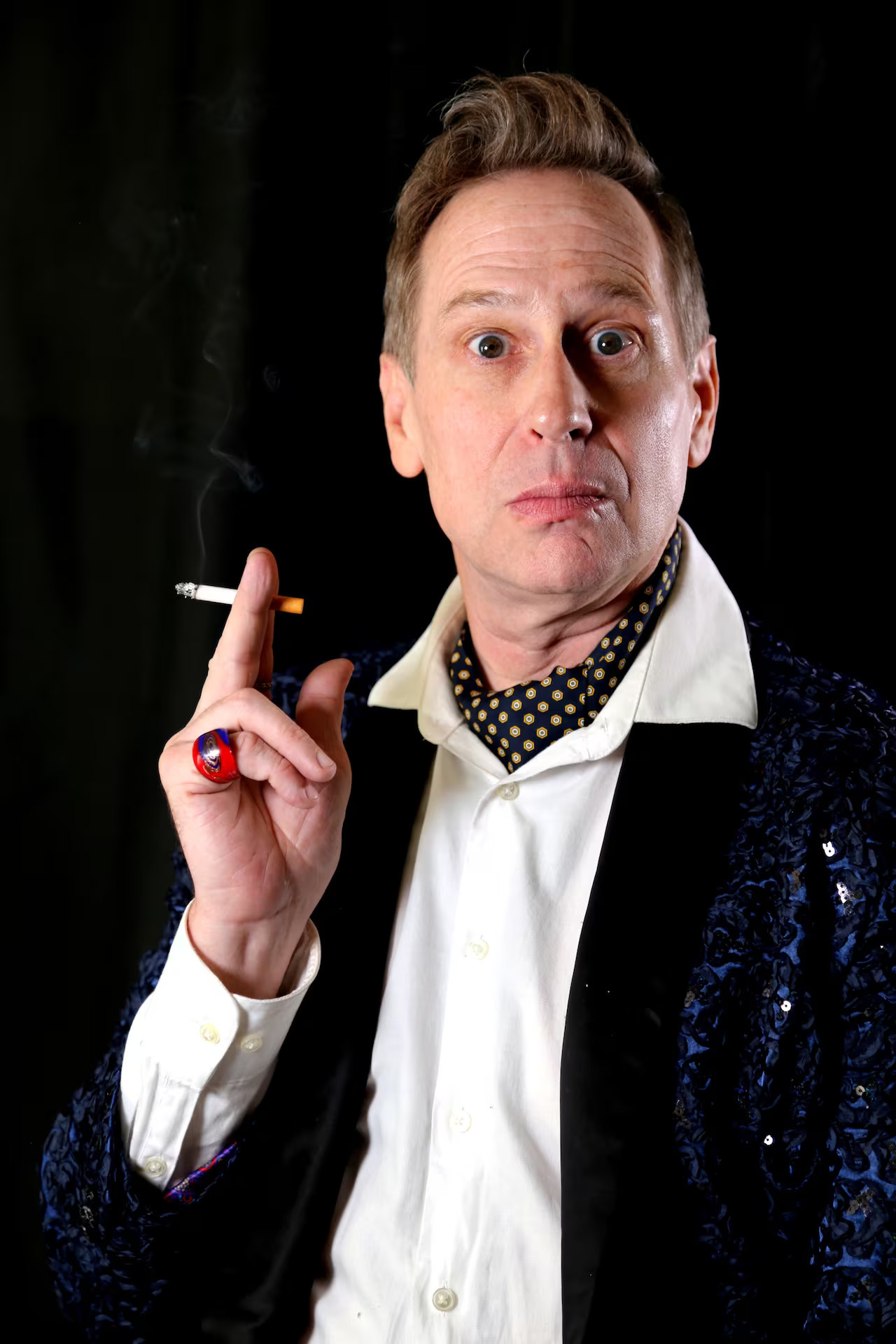TALES OF LOHR: SCOTT THOMPSON'S BUDDY COLE AT CITY WINERY PITTSBURGH
The latest salvo from a still-dangerous comedy barrier-breaker
It can be hard for younger generations to grasp, given the ongoing, defiantly pervasive presence of LGTBQ+ artists and creators throughout the spectrum of popular media, what a mightily transgressive figure Buddy Cole cut when he first shimmied onto television screens back in 1988. The brainchild of Canadian actor-comedian Scott Thompson, one-fifth of the iconic comedy troupe known as The Kids in the Hall, Buddy would not, at least on the surface, have seemed entirely unfamiliar to viewers weaned on the lispy, playfully effeminate likes of Paul Lynde, Charles Nelson Reilly, and Rip Taylor. But whereas the aforementioned in-retrospect-obviously gay-coded entertainers were largely forced to keep their orientations a matter of mere implication, Buddy, as portrayed in a series of mostly monologue-driven sketches, turned his fey hand gestures, sinuous purr of a voice, and louche smoking-jacket demeanor into lethal weapons.
Thompson, himself an out gay entertainer at a time when this was far less common than today, based Buddy’s “macho queen” persona on one of his own former lovers, and used Buddy to bring sentiments far too many LGBTQ+ people had been forced to keep hidden roaring into the daylight. Every conservative bigot up in arms about the gay lifestyle being supposedly “shoved down their throats” was tacitly burlesqued by Buddy’s gleeful recounting of all manner of oral, anal, and digital misadventures. The hypocrisy of the entertainment industry’s own unspoken keep-it-to-yourself stance, even as LGBTQ+ artists raked in millions for studios, record labels, and TV networks, fell in Buddy’s crosshairs as he recklessly outed potential still-closeted Friends of Dorothy (while hilariously claiming his refusal to believe the famously flamboyant Liberace was gay…or at least conceding that “I just don’t want him to be”). Even when his scathing scalpel of a wit occasionally landed what many regard as racially and religiously slanted cheap shots, Buddy soon grew to the status of a semi-mythic icon of prideful comic power, even forging, in the context of several KITH sketches, a friendship with no less an eminence than the now-late Queen Elizabeth herself.
Keep reading with a 7-day free trial
Subscribe to Tales of Lohr to keep reading this post and get 7 days of free access to the full post archives.




